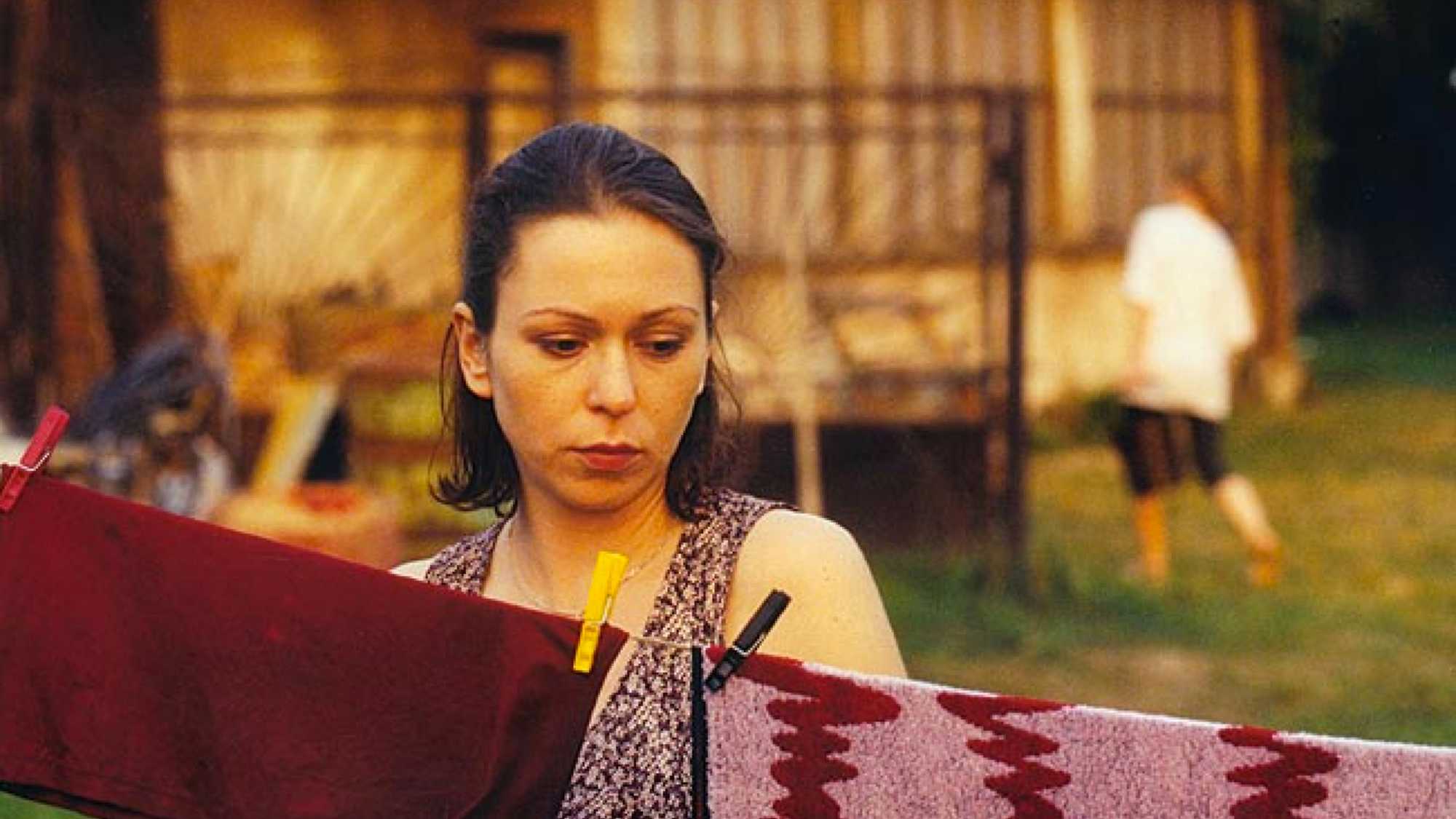A beautifully acted, subtle and perceptive drama about a young married couple, both musicians, who quit city life to work in the country.

Screened as part of NZIFF 2005
Faithless Games 2003
Neverné hry
This superb first feature from animator Michaela Pavlátová exhibits an extraordinary maturity and strength, and manages to pin down the thorny dynamics of a living, breathing relationship without tipping over into misery or melodrama. Composer Peter lives with his pianist wife Eva in small town Slovakia, somewhere near the Hungarian border. Their elderly neighbour has recently passed away, and they have arranged to purchase the run-down house from her heirs for conversion into a studio. When the late neighbour’s niece Mária and her daughter Janka arrive to complete the formalities, however, they take a liking to the place and move in themselves. At this point, the film seems poised to become an escalating neighbours-from-hell stand off, but Pavlátová, aware that reality is far more forgiving than reality TV, allows the burgeoning animosity to run out of steam. Anyway, it soon becomes abundantly clear that real estate is the least of our young couple’s troubles. Peter’s mind seems to be anywhere but home, while Eva’s home – and heart – is back in Prague.
A chamber drama with a chamber music background, Faithless Games observes the shifting relationships with tremendous insight and precision, and this uncommon naturalism makes for refreshing involving viewing. At first, the distant, controlling Peter seems to be the problem, but the more we see of the conjugal tension, the harder it becomes to pick a hero or villain. And picking a winner is all but impossible especially when the new neighbours become entangled in the drama. Janka, the vulnerable girl next door, begins to project her hopes and fears onto the sparring couple. Pavlátová makes smart use of this marginal observer. Janka’s involvement both raises the emotional stakes and, when her drunk, abusive father turns up, showing us what real domestic conflict looks like, puts Peter and Eva’s middle-class malaise firmly in perspective. As in real life, the resolution towards which the characters struggle can only be provisional: it’s the fact of that struggle, and the fact that this director treats it with such care and respect, that’s ultimately heartening. — Andrew Langridge